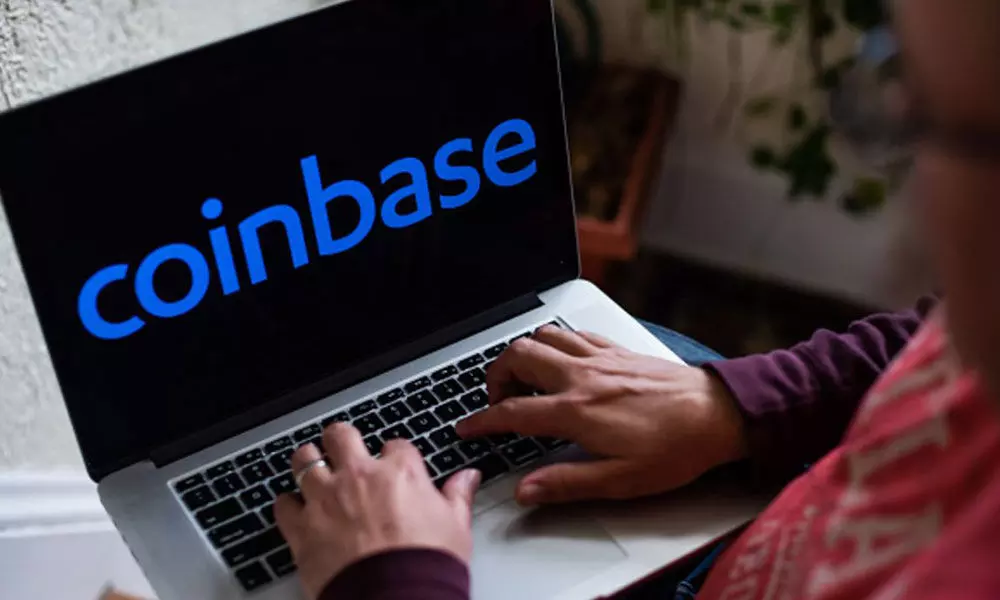Coinbase IPO a $100 bn crypto craze
Bitcoin is all about confidence, and confidence has a funny way of disappearing in a flash
image for illustrative purpose

The largest US digital-asset exchange is an odd business with many unusual risks
Coinbase Global Inc. plans to go public under a direct listing that values the largest US digital-asset exchange at almost $100 billion. The service the company offers is the same basic principle as a stock brokerage, giving retail investors access to the cryptocurrency markets, but that's where the similarities end. Coinbase has frequent service outages, nonexistent customer service and sky-high transaction costs. All of these are disadvantages are well known, and yet it remains the most viable option for individual investors.
I started getting bullish on Bitcoin two years ago, and opened an account at Coinbase in September 2019. I purchased $80,000 in Bitcoin over a period of about a week. I didn't bother to check out the fee schedule ahead of time, thinking it would be a low commission structure analogous to what I might get from Charles Schwab. I was wrong, spending about $1,200 on those trades at a commission rate of 1.49 per cent. I was a bit shocked because here we have this amazing new internet money and the fees are higher than what I would have paid in the stock market in 1981. I shrugged, figuring the fees would come down over time.
Fast forward to January 2021, when I was ready to close out the trade. By this point, $80,000 had turned into about $310,000. But the fees hadn't changed, and I paid $5,000 on the way out. Not a bad business. No wonder Coinbase is going public with such a high valuation. Lower fees are available for active traders with large balances on Coinbase Pro, but I only intended to do one trade, so I didn't think it was worth the effort.
The key difference between Coinbase and discount stock brokers is that Coinbase gets virtually all of its revenue - $1.28 billion in 2020 - from commissions and fees. That's different than stock brokerages, which get most of their revenue from net interest income, then securities lending and margin, and finally, payment for order flow. They get none of their revenue from fee-based business these days. I suppose that could be interpreted as a good thing; Coinbase's fees are transparent and represent the true cost of the business, while payment for order flow represents a hidden tax on trading.
Still, it's an odd business with lots of risks. One of the risks disclosed in the prospectus for the initial public offering is the likelihood that the identity of Satoshi Nakamoto, the anonymous person or persons who created Bitcoin, will be revealed. There is a "wallet" with 1.1 million Bitcoins, worth about $50 billion, that is assumed to be owned or controlled by Nakamoto. If the coins are sold or transferred from that wallet, it would set off pandemonium - probably the biggest crisis of confidence to hit any asset class, ever. A mystery man is a funny thing to disclose in your IPO filing, and it speaks to the cult-like nature of Bitcoin investing.
I was never precisely a believer that Bitcoin would revolutionize finance or otherwise change the way we think about currencies or mediums of exchange. I'm a trader, and I thought it was a good opportunity to make money. I was public about buying Bitcoin in 2019, and I felt that in order to be accountable, I should be public about selling it in January. I tweeted about it, and I was met with a torrent of criticism - three solid days of my mentions filling up with "have fun staying poor" and other unprintable stuff. It went a little bit beyond normal Twitter playground trash-talk and crossed over into somewhat frightening territory.
People only get this way about two things: politics and religion. But Bitcoin has crossed over into religion territory, with a belief in a supernatural power (Satoshi), the concept of sin, a method of salvation, central myths and narratives, ritual, and even material expressions (Lamborghinis). We know what happens when you threaten people's religion-people die over this stuff.
Bitcoin is an investment cult, but at some point you have to leave the cult, making you an apostate. Central to this religion is the concept of "HODL" - never selling your Bitcoin. I can think of a number of reasons why Bitcoin could go down-even to zero-and I prefer not to experience that trip with my investments. There is no doubt in my mind that digital money is the future, but it may or may not involve Bitcoin. That would be bad for a lot of Bitcoin investors and for Coinbase.
There's a saying that the best way to make money in a bubble is to sell the pickaxes to the gold miners. That is Coinbase's business. But Bitcoin exhibits a lot more fragility than the true believers admit or realize. Bitcoin is all about confidence, and confidence has a funny way of disappearing in a flash. (Bloomberg)

